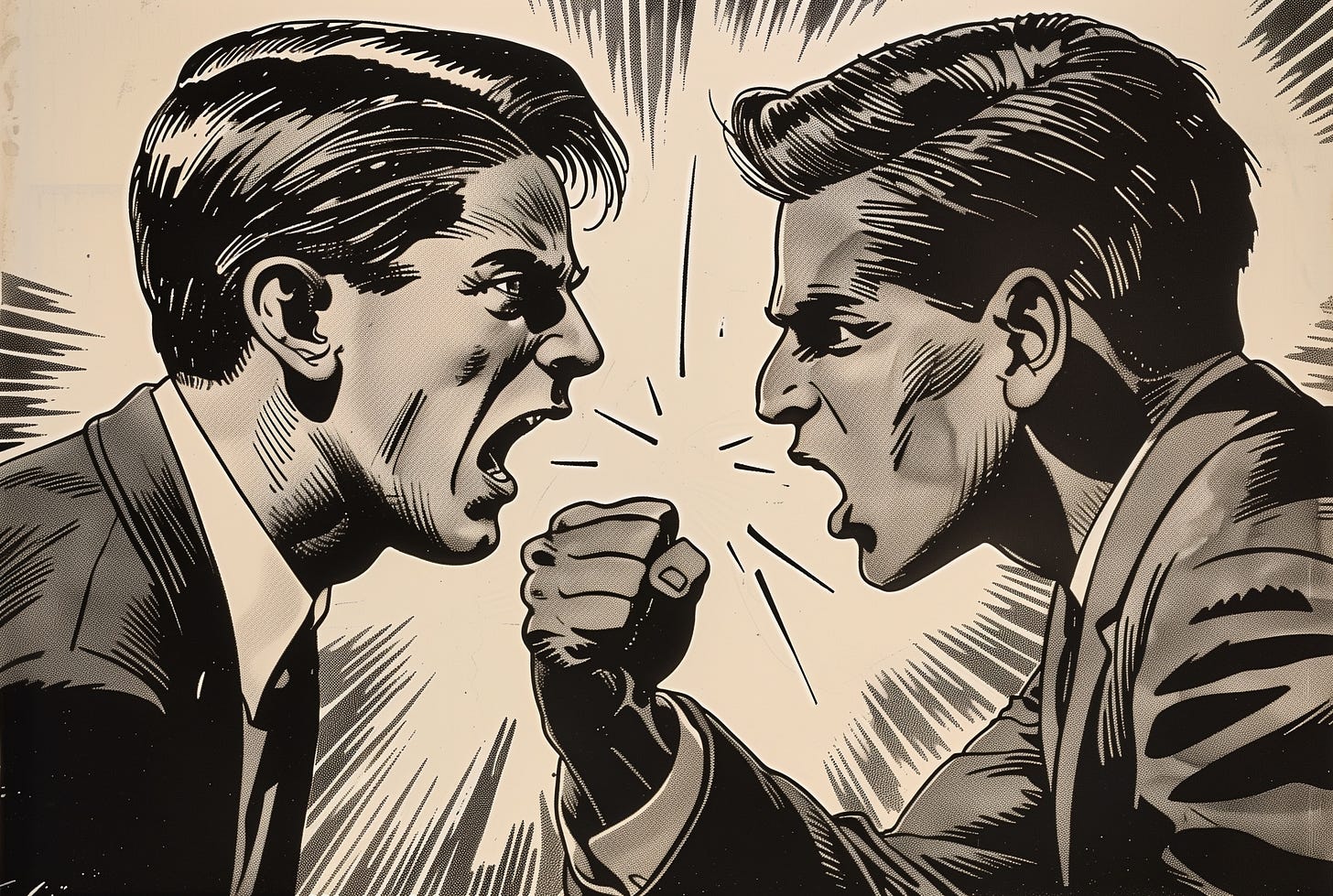The art of disagreement
Why are so many of us losing friends over differences of opinion?
Some of my most vivid memories of my time as a student involve late-night conversations with housemates, all of us inebriated and excitable, in the tumbledown spider-ridden house we shared on the outskirts of town. The property was poorly insulated and often cold, and so we would congregate in the kitchen and fire up all four hobs on the stove until the room was swelling in a haze of toxic heat. Our gas bills were included in the rent, and so this was far more cost-effective than feeding coins into an electricity meter that seemed permanently ravenous.
And sometimes these nocturnal symposia would become as torrid as the air we were breathing. I recall one evening when a visitor had taken umbrage at some comment on Welsh nationalism. Before long the drunken discussion had morphed into an argument, slurred salvos flew back and forth through the cigarette smoke, and there seemed to be no possibility of compromise. And when we all woke the next morning – or rather, afternoon – there remained not the faintest aftertaste of bitterness. There was no suggestion that the profound disagreements within the group would sully our friendship. We probably went for a jacket potato.
This was typical of the time. Friends could take opposing views on contentious topics without fear of ostracisation. Is this even possible anymore? Recently I spent some time going through my smartphone to delete the numbers of former friends. So many have taken the view that by consistently defending free speech and liberal values – and, shock horror, by hosting a show on the dreaded GB News – I have somehow violated the tribe’s sacred creed. All of this is fairly depressing, but it does free up one’s social calendar.
I’m far from alone in this experience, and I suspect that most of this nonsense began in 2016 with the Brexit vote. Personally, I opposed the UK’s membership of the European Union for precisely the same reasons that prominent leftists such as Tony Benn or Barbara Castle did – which is to say that those in power ought to be accountable to the electorate, and it’s undemocratic to outsource lawmaking capabilities to an unelected body. And yet Brexit was the moment when many people appeared to surrender their sanity, and decided to sever long-standing relationships over their newfound devotion to a neoliberal trading bloc. I cannot be the only one to have noticed that the most zealous cheerleaders for the EU in the wake of the referendum had previously regarded it with indifference at best.
Yet I do not believe that Brexit alone could have actuated this generalised shift into this “with us or against us” mentality that dominates today’s political discourse. There was the election of Donald Trump in the same year, of course, but I suspect that these seismic political events were just part of an unfortunate concatenation of circumstances. Had the British public voted to leave the EU in the 1990s, there would probably have been a mass shrugging of shoulders and a resigned acceptance of what we call the “loser’s consent”. After all, a democracy can only function if its members understand that sometimes collective decisions don’t go their way. Had Brexit occurred in the 1990s, I doubt that senior politicians would have spent years attempting to reverse the result, or that members of the commentariat would have declared endlessly that “nobody knew what they were voting for”.
In other words, something else is afoot. It is surely not too much of a stretch to ascribe some of the blame to the concurrent rise of the ideology of Critical Social Justice in all our major public, educational, artistic and media institutions. With its insistence on a Disneyfied “Good Versus Evil” vision of humanity, this movement has guaranteed that a significant proportion of people now resolve their political disputes through “ghosting”; that is to say, through ending relationships abruptly for no other reason than disagreement has been interpreted as evidence of evil.



